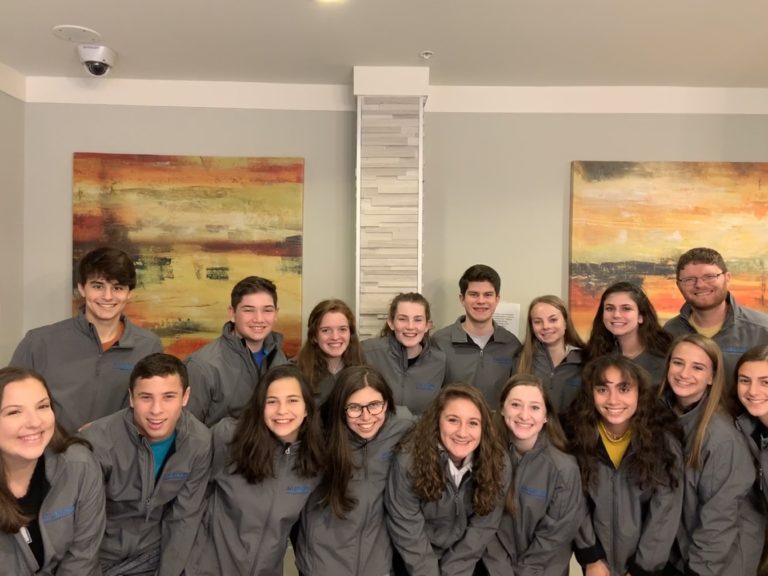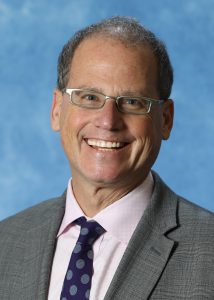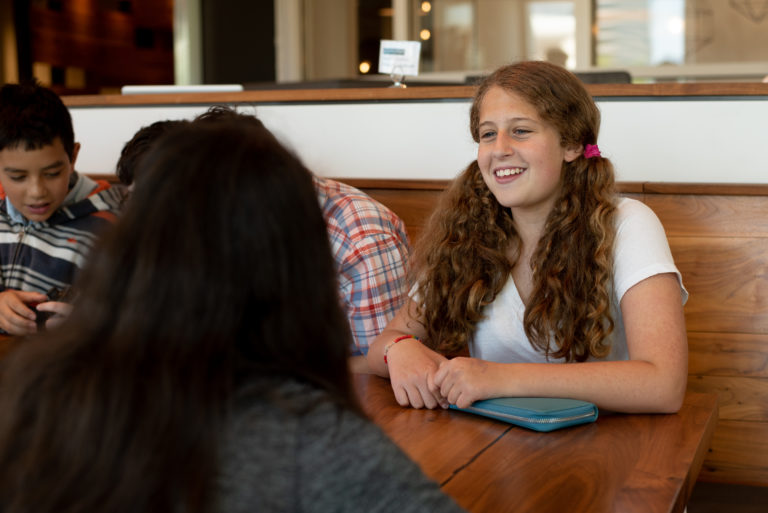
JumpSpark recognized early on that parents are an essential component to an engaged and healthy Jewish teen population. In response, JumpSpark launched Navigating Parenthood in 2018. Over the past two years JumpSpark has hosted 16 Navigating Parenthood workshops, panels and films across Atlanta equipping almost 400 parents with the network and resources to raise thriving Jewish teens.
Introducing Amy

Navigating Parenthood Coordinator
Email Amy
Now in 2020, Navigating Parenthood is entering an exciting new phase with the addition of Amy Fox as Navigating Parenthood Coordinator. Amy is no stranger to the challenges of parenting Jewish teens in Atlanta today. She is the mother of boy/girl twins who graduated from The Epstein School and are currently in their junior year at Riverwood International Charter School. She is also deeply rooted in the Atlanta Jewish community serving as a Wexner Heritage Fellow, Lion co-chair for Federation’s Women’s Philanthropy division, advisory board member of the Atlanta Jewish Foundation, member of the ACT (Agents of Change Training) Cohort for the Jewish Women’s Fund, and an alumna of the Frank Mission to Poland and Israel. Last summer she was able to connect with many of the parents in the community through her work as co-Chair of Administration for the 2019 JCC Atlanta Maccabi Games.
Learn more about Amy’s work as an ambassador for the Atlanta Jewish Community ›
Instead of starting with more Navigating Parenthood events, phase one of Amy’s part-time work will be to launch a listening campaign across the community to learn more about both parents needs and their challenges.
Reflecting on why her new position with JumpSpark is important, Amy shared,
“As teen parents, for sure there can be rewarding moments, but these moments can be accompanied by the feeling of being isolated, ill-informed, and questioning one’s ability to support our kids and assist them along the road to becoming independent well-adjusted adults. One has the sense of being all alone in this endeavor, when, there are so many teen parents dealing with the exact same issues”
JumpSpark is invested in the parents in our community and wants to create a strong partnership to meet their needs and the needs of their teens. Amy’s new role is full of potential to create the resources, programming and networks that are needed to do just that.
Contact Amy
Are you the parent of Jewish teens in Atlanta? Amy would love to meet with you, hear your story, and bring you along on this journey. She can be contacted at AmyFox.ATLteen@gmail.com.














